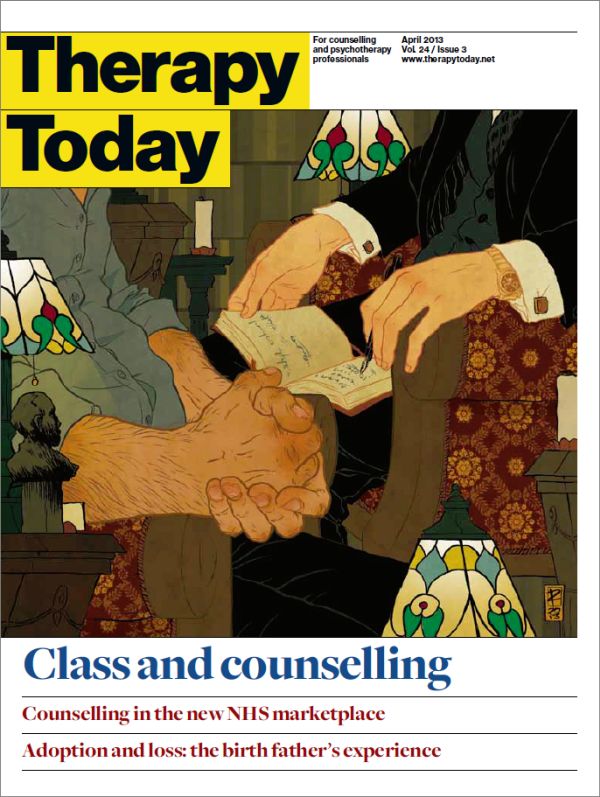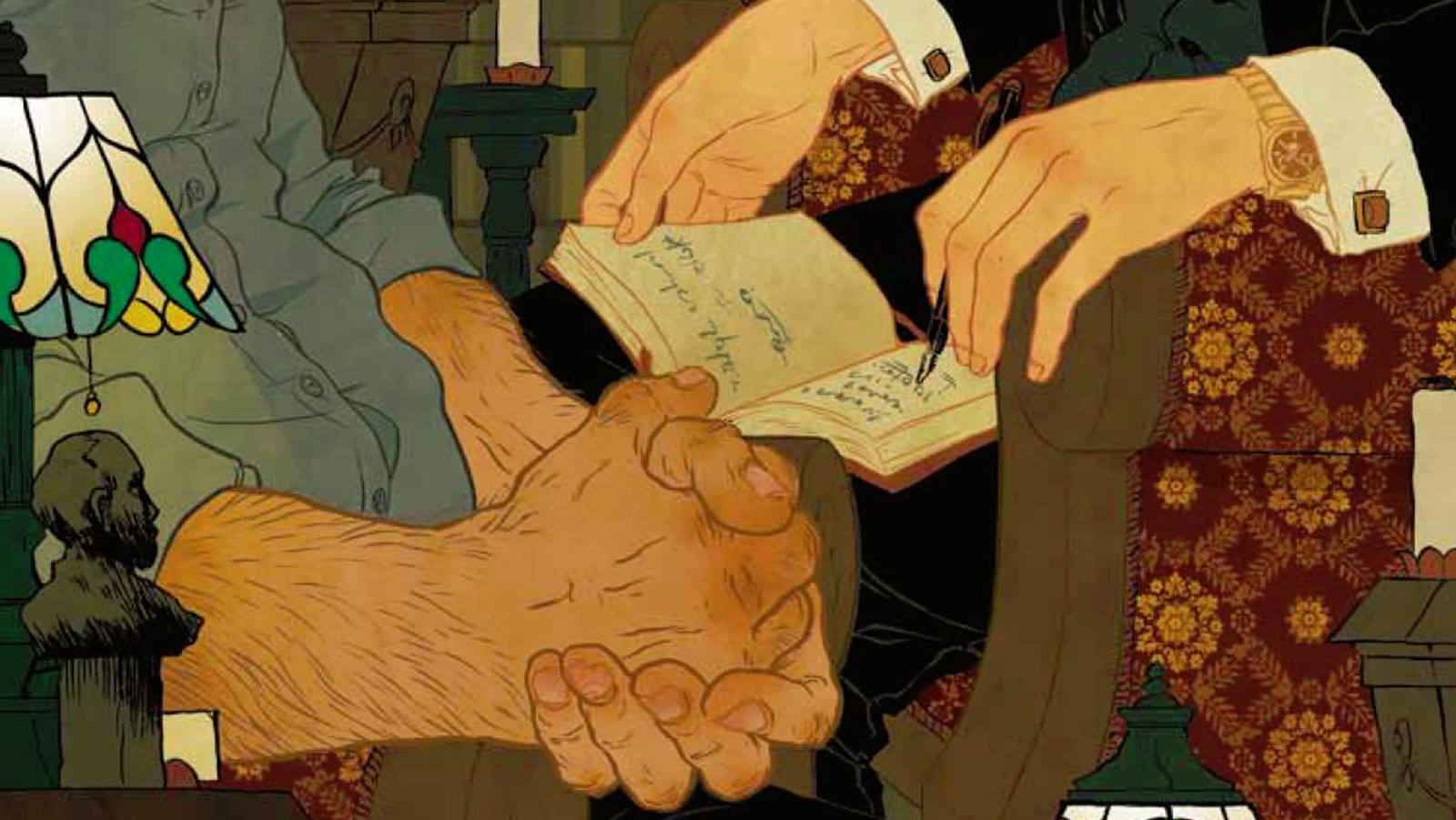In this issue
Features
Patients by numbers
Catherine Jackson reports on the roll-out of the NHS reforms.
Class and counselling (free articles)
Simone Daniels and Mike Trier discuss how class can affect the therapeutic relationship.
Adoption and birth fathers
Birth fathers’ needs have been overlooked, say Gary Clapton and Andrew Ward.
For a fee or for free?
Dannie Rosenhammer explores clients’ views about the impact of paying for therapy.
The richness of everyday relationships
Informal relationships are a rich source of emotional support, argues Denis Postle.
Growing into supervision
Homeopath Zofia Dymitr charts her learning journey as a supervisor of counsellors.
Regulars
Rachel Freeth: Sometimes it's hard to listen
In the client's chair
Paul Hill: That was then and this is now
In training
Mel Perry: From out of the frying pan
The researcher
Barry McInnes: Eating a quartile of humble pie
Talking point
Marjorie Orr: Protecting the vulnerable
How I became a therapist
Mervyn Wynne Jones
Dilemmas
Fear and self-loathing
The interview
Emmy van Deurzen: Learning to love my own life
BACP
From the chair
Amanda Hawkins: Images of progress
Additional online content
In conversation
Colin Feltham talks with Simone Daniels and Mike Trier about class, Marx, Rogers and incorporating the socio-political in counselling training and practice

Members and subscribers can download the pdf of this issue from the Therapy Today archive.
Editorial
So rarely does the subject of social class come up in our discussions around counselling that I seized on the dialogue about class and the counselling relationship between Simone Daniels and Mike Trier. I was struck by their honest and direct discussion: for example, Simone shares how, as a working-class young person, she didn’t feel entitled to go to university or to own her own home. As a counsellor today, she doesn’t always feel good enough to work with people from a more cultured and educated background than her own.
Of course, our experience and awareness of social class must play a crucial part in how we work with different clients. Coincidentally, this is something that Mora Maclean writes about in the letters pages this month. Social class and inequality, she says, hardly seem to get a look in in Therapy Today, in training courses, even in equality and diversity workshops. A counsellor’s own experience could get in the way of their ability to offer the core conditions to clients, either by over-identifying with a client who has experienced poverty or by judging a client from a more privileged social background and portraying a false empathy.
Interviewing Simone and Mike for TherapyToday.net, Colin Feltham asks to what extent counselling training is unintentionally biased against working-class culture. Simone points out that styles of communicating in counselling training tend to emulate the dominant group, which is white, middle-class and female – speaking softly and tentatively. Why is this so and is it always appropriate? Is a two-tier system of training developing that will perpetuate the class divide with foundation degrees in FE colleges on the one hand and university doctorates on the other? And a bigger question: why are counsellors so reluctant to engage with social and political change?
Sarah Browne
Editor
